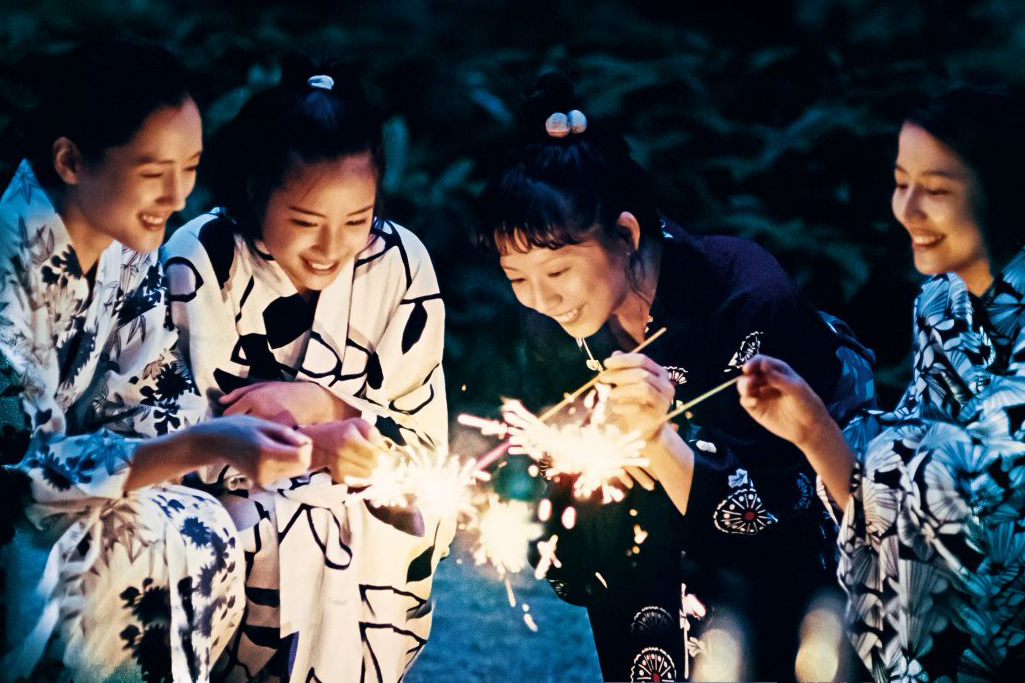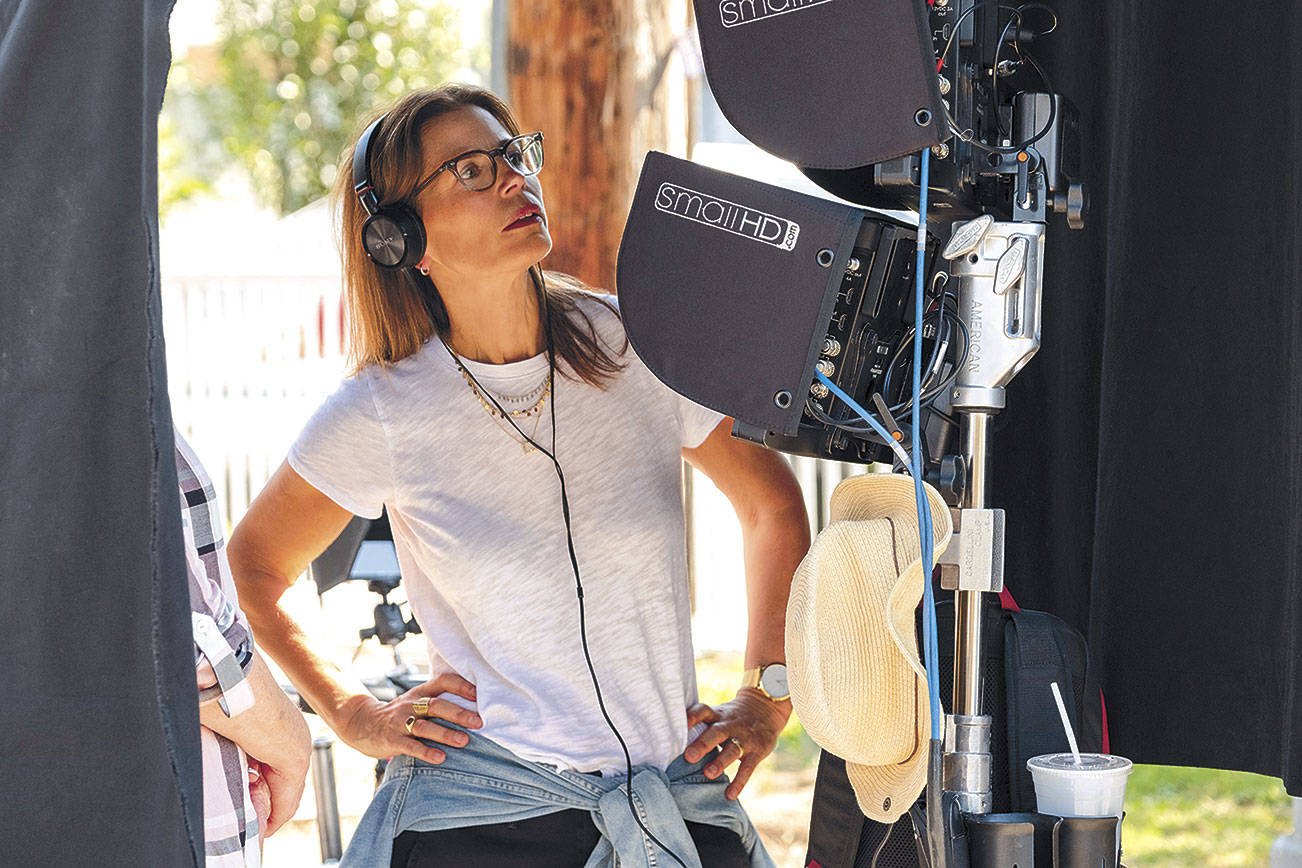Three adult sisters stand on a small-town road, gazing at the discharge from a nearby chimney. “Smoke from a crematorium is so old-fashioned,” one of them remarks—not as a put-down, but more as a dreamy observation. The ashes inside the chimney are what remains of their father, but the sense of detachment is understandable; he abandoned his family 15 years earlier to be with another woman and have another child. The sisters have come to his town for a dutiful funeral visit. As quickly as possible, they will return to their seaside city of Kamakura, where they share a house.
They will not get away without complications, which is how Hirokazu Kore-eda’s wonderful new film (based on Akimi Yoshida’s award-winning graphic novel Umimachi Diary) takes flight. The title Our Little Sister refers to the father’s other daughter, the now-adolescent Suzu (Suzu Hirose). In a blunt but necessary narrative contrivance, the little girl’s mother is also dead, so her only blood relatives are her three half-sisters. Is there room in the Kamakura house for one more? Of course there is. But given the resentment the older sisters still feel over their father’s exit from their lives, and given that Suzu is the living embodiment of that abandonment, inviting the girl to join their lives will be a difficult challenge.
Or maybe not that difficult. One of the things I like most about this movie is that while its stakes could not be more emotionally charged, its approach to drama is matter-of-fact. It has no evil relatives, no heartless officials. There are quarrels, and a selfish mother and a couple of thoughtless boyfriends, and death, rearing its head at the beginning and the end. But even death is part of the flow, part of the process of getting along and finding a place in the world. In fact, the only villain here is a syrupy musical score.
The three older sisters have distinct traits, perhaps formed by their abandonment. The responsible oldest, Sachi (Haruka Ayase), is a nurse whose romance with a doctor has distinct complexities. Her sober demeanor contrasts with that of middle sister Yoshimo (Masami Nagasawa), who likes sake and hooking up with irresponsible men. Youngest sister Chika (Kaho) barely remembers her father, and seems the happiest of the three—content with the steady paycheck from a shoe store and the jovial company of her goofball boyfriend, an ex-mountaineer who lost a few toes to frostbite. Everybody’s basically all right—or at least “It isn’t anyone’s fault,” as one character says. That’s as close as Kore-eda comes to a statement of meaning.
Kore-eda, whose previous films include the superb Nobody Knows (2004) and Like Father, Like Son (2013), is a scrapbooker. Toward the end of this film, someone asks what memories the group will recall at the moment of death (a subject that takes up the entirety of Kore-eda’s 1998 film After Life). Our Little Sister is like a collection of those moments: running for a train, walking down a street on a summer day, picking plums for bottling plum wine. Another would have to be the scene where Suzu sits with her new sisters in their favorite seafood place, watching them chatter about this and that in the unforced manner of family; as the scene goes along, you see the realization spread across Suzu’s face that she is now a part of this imperfect but vital organism, a role previously unknown to her. If this description has not made it clear, good luck staying dry-eyed during this movie.
Another reason I loved this film is the presence of food. That fish joint unexpectedly becomes a central location, but there’s also a lot of cooking and consuming in general. This fits my still-developing thesis about how the greatest directors focus on food prep and dining as central elements in their worldviews. Hitchcock knew all about it; so did Yasujiro Ozu (whose masterpiece Tokyo Story is strongly evoked here). In Our Little Sister, plum wine and whitebait toast have very specific, sometimes heartbreaking connections to people and experiences. That’s sufficient drama for this gentle beauty of a film.
film@seattleweekly.com








